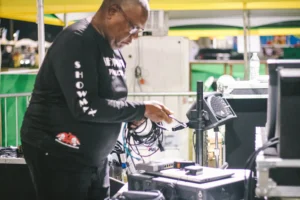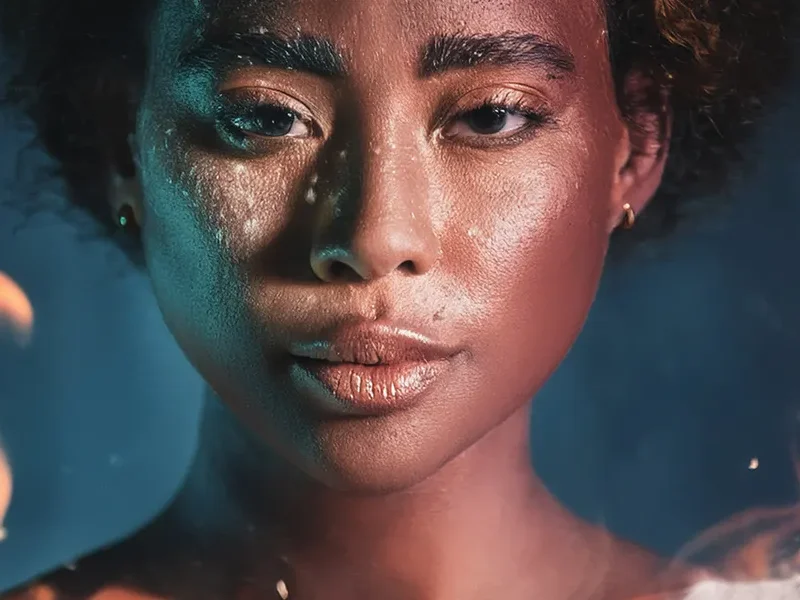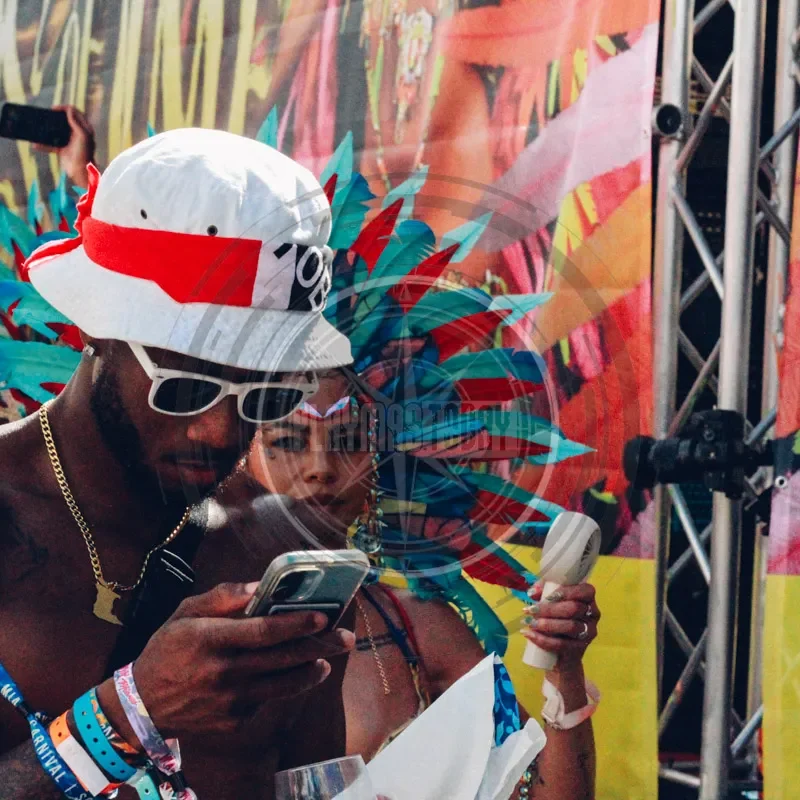Punished for Pushing Culture: The DJ’s Dilemma in the Age of Algorithms
It’s a paradox every modern DJ knows too well. You spend your life championing music, digging for new sounds, and creating spaces for cultural discovery, only to be treated like a criminal by the very industry you help build.
A few years ago, my own media platform, DIRadiocast, was nearly shut down. We were threatened with takedowns for using music in our podcasts and shows—music we meticulously sourced from artists and record pools. Our entire mission was to elevate urban, Caribbean, and world sounds, giving new artists a platform through mixes and in-depth interviews. We moved our mixes to Hearthis.at, hoping to find a safe harbor.
But the problem persists. The question that haunts me, and so many like me, is this: If you go through all the proper channels to get the music, why are you still penalized with takedowns, content blocks, and channel bans?
From Street Teams to Takedowns: A Broken System
In the mid-90s, I was on the other side of the equation. I worked in the music industry, distributing promotional records to college DJs. My job was to get music into key places, to generate buzz on campuses, in the clubs, and at block parties. I wrote countless reports on how audiences responded. Before algorithms, before streaming playlists, we were the influencers. We were the discovery engine.
Fast forward to 2025. I’m now being punished for doing the very thing I was once paid to do.
The disconnect lies in a system that has replaced human nuance with automated enforcement. Here’s the breakdown:
- The Rise of the Bots: Digital Streaming Platforms (DSPs) like YouTube, Facebook, and Twitch use automated Content ID systems. These bots are designed to scan and flag copyrighted audio. They are incredibly effective, but they lack context. They can’t distinguish between a pirated upload and a promotional DJ mix that has a record pool’s blessing. To the bot, an audio fingerprint is just a fingerprint.
- The Licensing Maze: The “permission” you get from a record pool is typically a public performance license. This allows you to play (i.e., “perform”) the track in a live setting, like a club or a livestream. However, when you create a mix and upload it as a permanent file (a podcast or an on-demand show), you enter the territory of reproduction and distribution rights (also known as mechanical rights). These are entirely different licenses that are far more complex and expensive to secure for every single track in a mix.
- The Safe Harbor Paradox: Platforms that host user-generated content are protected by “safe harbor” clauses in laws like the DMCA (Digital Millennium Copyright Act). To maintain this protection, they must respond swiftly to takedown notices from rights holders (the record labels). For them, it’s cheaper and safer to “takedown first, ask questions later” than to risk a multi-million dollar lawsuit for copyright infringement. This is why a platform might have a syndication deal with a DJ service but still be forced to take down the content that comes from it.
A Path Forward: From Penalized to Partner
The frustration is valid because the solution seems so obvious.
You’re right to assume that if a platform can detect a song, it can also monetize and credit it. The technology exists. YouTube’s Content ID system already does this by placing ads on videos and sharing revenue with rights holders. So why can’t this be the default for DJ mixes? Why not display a tracklist with links to Spotify, Apple Music, or Bandcamp, turning discovery directly into artist support?
This would require a fundamental shift in the business model—moving from a purely punitive system to a collaborative one. Platforms like Mixcloud have built their entire model on this principle, securing direct, blanket licensing deals with major labels that allow for legal, monetized mixes. This is the future we should be fighting for.
So, how do you, as a DJ and a lover of the culture, continue to contribute without feeling like a criminal?
- Choose Your Platform Wisely: Prioritize platforms built for DJs, like Mixcloud, which have the necessary legal frameworks in place. While not perfect, they are leagues ahead in protecting you.
- Embrace the Live Stream: Livestreaming often falls more clearly under the “public performance” licenses you get from record pools. The ephemeral nature of live content receives less scrutiny than permanent, on-demand files.
- Credit, Credit, Credit: Even if the platform doesn’t do it automatically, always post your tracklists. Link to artist pages and purchase platforms. Show that your intent is promotion, not piracy.
- Educate Yourself: The rules are complex, but understanding the basics of performance, mechanical, and sync rights can save you a world of trouble.
- Use Your Voice: The conversation you started here is the most important tool we have. Talk about it online, support organizations fighting for digital rights, and advocate for a system that recognizes the DJ as a partner in discovery, not an enemy.
Our role as cultural curators has never been more vital. The technology may have changed, but the mission hasn’t. It’s time for the industry’s rules to catch up.
Legal & Educational Resources for DJs
Here are a few starting points for DJs looking for more clarity on the complex topic of music licensing.
- The Electronic Frontier Foundation (EFF): A leading nonprofit organization defending civil liberties in the digital world. Their articles on copyright and the DMCA are invaluable for understanding your rights.
- Digital DJ Tips – “Copyright For DJs: The Ultimate Guide”: This is a comprehensive, practical guide written specifically for DJs that breaks down the different types of licenses and scenarios you might encounter.
- PASSUS – “Music Copyright For DJs”: An intellectual property law firm that provides clear, concise explanations of the legal landscape that DJs must navigate.
Disclaimer: These links are for informational purposes only and do not constitute legal advice. For specific legal questions, you should consult with an attorney specializing in entertainment or intellectual property law.




